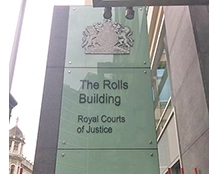Last year IY LEGAL won a LCIA Arbitration for one of our coal trading clients. Our client agreed to sell South African coal to an Indian buyer on FOB SA terms. The contract was concluded in March 2020, just as Covid 19 started to affect global trade and commodity markets. The Indian buyer reneged on the contract, initially claiming force majeure and later that no binding contract had been concluded and that, consequentially, there was no valid arbitration agreement. The Seller contended that the contract incorporated SCoTA v8 terms, which provide for LCIA Arbitration in London. We commenced Arbitration on behalf of the Seller, claiming damages for breach/non-performance of contract in a falling market.
The case proceeded to a full oral Arbitration hearing and our clients prevailed on all points. The Tribunal found that there was a binding contact and arbitration agreement, based on SCoTA v8 and awarded our clients 100% of their market loss damages claim.
The Buyer then applied to the Commercial Court under section 67 of the Arbitration Act 1996. Unlike an application to appeal an Arbitration Award based on an error of law, etc, for which leave/permission of the Court is required, section 67 provides a route to challenge the jurisdiction of the Tribunal without requiring leave; in this case, that the parties had not agreed a binding contract or agreed to arbitrate disputes.
A section 67 application is a complete rehearing of the case, rather than an assessment of whether the Tribunal’s findings were right or wrong? New evidence can be adduced, as it was by the Buyer in this case, and a completely fresh trial takes place before a Judge.
The matter proceed to a trial before the Commercial Court this month. With our support, our clients succeeded in demonstrating that there was both a binding contract and arbitration clause, such that the Judge dismissed the section 67 application appeal and confirmed the Arbitration Award. Leave to appeal was applied for by the Buyer but was denied by Judge (and in these applications there is no separate right to petition the Court of Appeal) such that the Arbitration Award became final in favour of our clients. Our clients were also awarded their costs.
Generally, in shipping and international trade, parties accept the decisions of Arbitrators. It is also typically difficult (and rare) for a party to get leave to appeal a London Arbitration Award to the Court. Section 67 provides a way for a disgruntled Respondent to try and challenge an Award if it can mount an argument that the Tribunal has no jurisdiction. On this occasion the Court agreed with the Tribunal (and, ultimately, with ourselves and our assessment of the case from the outset) that there was a contract which our clients were entitled to enforce.


